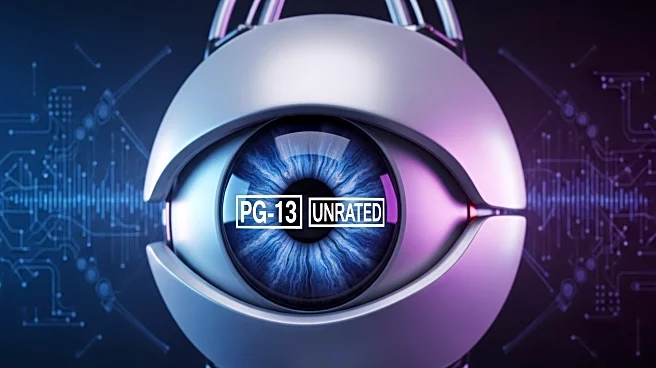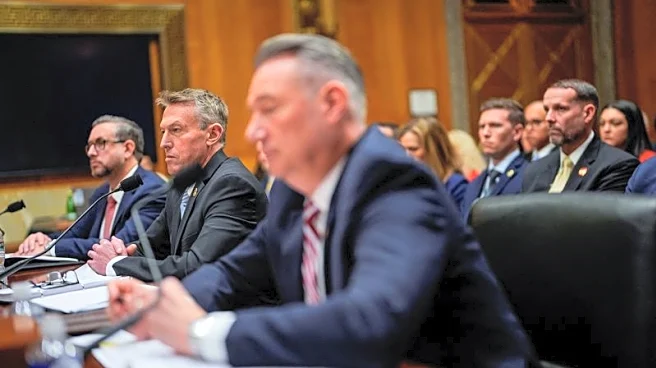What's Happening?
Blumhouse's sequel to the 2023 horror hit, 'M3GAN 2.0,' is set to premiere on Peacock this week. The film continues the story of the AI robot diva, M3GAN, who now faces a new technological adversary. The movie stars Ivanna Sakhno, Jenna Davis, Amie Donald, Aristotle Athari, and Jemaine Clement, with Gerard Johnstone returning as director. Viewers can choose between the PG-13 version and the unrated version, both available starting Friday, September 26. Peacock offers two subscription tiers: Peacock Premium, which includes ads, and Premium Plus, which is mostly ad-free and allows offline viewing.
Why It's Important?
The release of 'M3GAN 2.0' on Peacock highlights the growing trend of streaming platforms acquiring exclusive rights to popular films, enhancing their content offerings to attract subscribers. This move is significant for Peacock as it competes with other streaming giants by providing diverse content, including exclusive movie releases. The availability of both PG-13 and unrated versions caters to different audience preferences, potentially broadening the film's appeal. Additionally, the film's focus on AI and technology themes resonates with current societal interests in technological advancements and their implications.
What's Next?
As 'M3GAN 2.0' becomes available on Peacock, the platform may see an increase in subscriptions, particularly from horror and sci-fi enthusiasts. The film's performance could influence future content acquisition strategies for Peacock, as well as other streaming services. Additionally, the film's themes may spark discussions on AI ethics and technology's role in entertainment, potentially influencing future film projects and narratives.
Beyond the Headlines
The release of 'M3GAN 2.0' also underscores the evolving landscape of film distribution, where streaming platforms play a crucial role in reaching audiences. This shift may impact traditional cinema attendance and influence how films are marketed and monetized. Furthermore, the film's exploration of AI could contribute to broader cultural conversations about technology's impact on society, privacy, and security.











